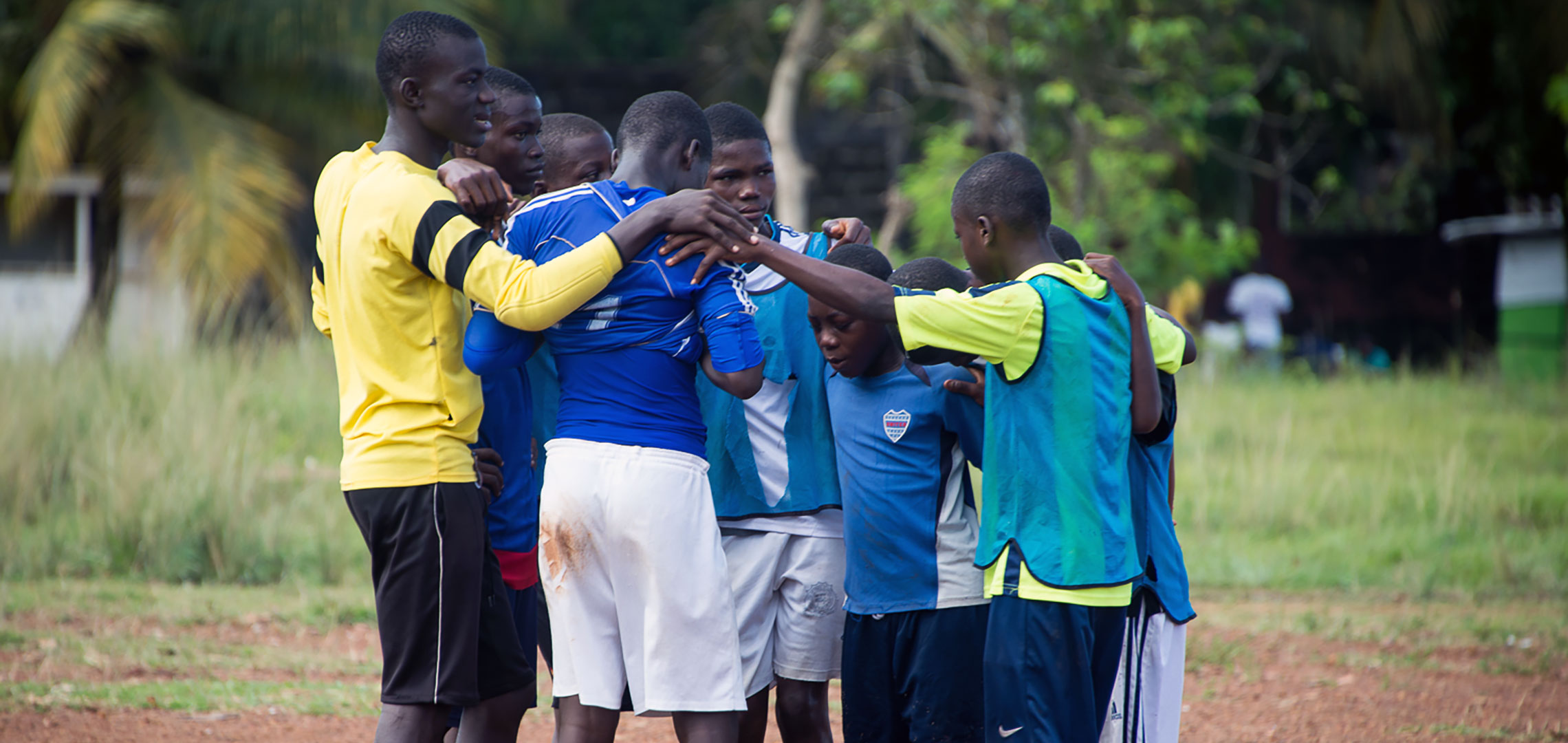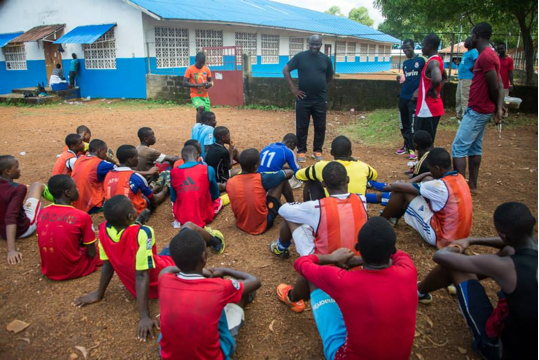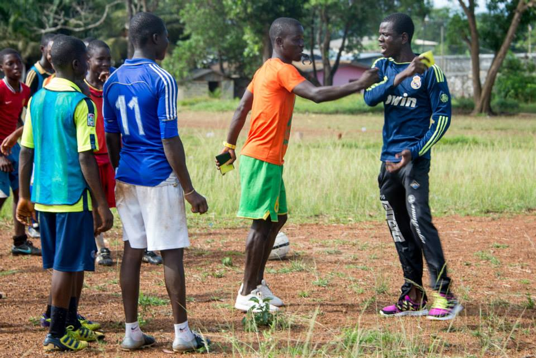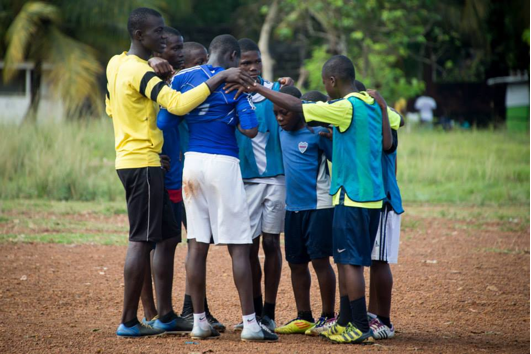NEWS
July 10, 2015

IN BRIEF
By: Sam Burnette III, who hails from a family of prominent Liberian footballers and is the Founder and CEO of the Liberia Football Foundation. This blog post was originally published by the Huffington Post. Building the Next Generation of Responsible Athletes in Liberia The concept of Sports for Development (S4D) is gaining prominence across the world, especially in developing countries. When properly implemented, these types of programs are very effective at creating social change and supporting development- especially of children. In Liberia, one of several West African countries devastated by the Ebola virus, there are a handful of organizations that see [...]
SHARE

By: Sam Burnette III, who hails from a family of prominent Liberian footballers and is the Founder and CEO of the Liberia Football Foundation. This blog post was originally published by the Huffington Post.
Building the Next Generation of Responsible Athletes in Liberia
The concept of Sports for Development (S4D) is gaining prominence across the world, especially in developing countries. When properly implemented, these types of programs are very effective at creating social change and supporting development- especially of children.
In Liberia, one of several West African countries devastated by the Ebola virus, there are a handful of organizations that see value in S4D to implement economic, social, and developmental strategies. Street Child of Liberia (SCOL), a UK based charity has set an excellent example of how sports can be used for positive change through their ‘Street Child World Cup: Team Liberia’ football program.
The organization works with kids who live and work on the streets. Through its team of social workers, SCOL engages children with the goal of reintroducing them to education with fully-paid tuition, and placing them back into family members’ homes with a social worker as the mediator between child and family.
Back To Reality
Street Child of Liberia’s football program started after a boys soccer team represented Liberia in the 2014 Street Child World Cup (SCWC), which was held in Rio De Janeiro, Brazil. Unlike the other teams that participated in the event, Team Liberia returned home to a country increasingly affected by the spread of the deadly Ebola Virus Disease (EVD). While the Facebook pages of other teams that participated in the SCWC showed the players resuming to their normal football routines, the Facebook page for Team Liberia showed the establishment of hand washing stations.
With Ebola taking its toll on Liberian communities, SCOL changed their programmatic focus to messages around Ebola prevention. The team was trained by UNICEF personnel on how to carry out an effective Ebola awareness campaign in their communities. As the number of Ebola deaths increased, SCOL also took the lead in providing orphaned children with food, shelter, medication, and relief supplies. The organization has helped provide assistance to more than 2,500 of the estimated 10,000 Ebola orphans in Liberia.
The SCOL and Team Liberia felt Ebola personally. In August 2014, West Point, a low-income community in the center of Liberia’s capital city, Monrovia, was quarantined after residents raided a holding center for Ebola patients- West Point is home to six members of Team Liberia. Residents resisted the quarantine after a police barricade was placed at the end of the only road leading out of the community. During the resistance, a 15-year-old boy named Shakie Kamara was shot and later died of his wounds. He had been a SCOL beneficiary and a friend to members of Team Liberia.
Addressing Social Issues
Following an eight month ban on football games by the Liberia Football Association (LFA) as a result of Ebola, the Team Liberia football program finally resumed in February 2015 with the Liberia Football Association providing use of one of the country’s few high quality pitches for children used to playing on alleys and rocky fields. At the first training session after the ban, the children talked about how their lives were impacted by Ebola. With 85% of children in the program living in West Point, the discussion brought back some disturbing memories, but ones that needed to be talked about in order to heal wounds. For example, one boy said he wished to make no more friends, because his best friend had died from Ebola.
I recently founded the Liberian Football Foundation (LFF) to address social issues like these. We use football to foster social change and development in the lives of poor children and poor communities. The foundation has three main objectives: organize youth football programs, build or renovate youth football fields and parks, and donate football equipment to children. Our mission is to create results by using sport to promote economic, social, and human development. With over 10,000 children orphaned by Ebola, LFF is devising a Post Ebola Strategy in partnership with SCOL and UNMIL, with plans to take the football program into communities highly effected by the disease.
Partnerships Are Essential
LFF is partnering with the Accountability Lab, an organization that supports creative tools for accountability, transparency, and anti-corruption. The Accountability Lab has been running a football program called “Kick-out Corruption,” which engages young people around issues of anti-corruption and integrity through interactive football games. For example, one of the Kick-out Corruption games calls for the referee to show bias to one team. The idea is to demonstrate the anger that is generated when decisions are made based on favoritism rather than merit.
S4D Can Change the World
Sports has the potential to transform youth in developing countries. S4D is a cost-effective way to reach young audiences and engage them in ways they understand and enjoy. This generation doesn’t listen the same way as their parents during workshops and classroom trainings- we have to make sure they actively participate. Citizens turn to sports as a way to escape the overwhelming reality of hardship; and sports promote healthy living, teach teamwork, and enable children to obtain valuable life skills.
During a speech in 2006, Nelson Mandela said “Sport has the power to change the world. It has the power to inspire. It has the power to unite people in a way little else does. Sport can awaken hope where there was previously despair.” In Liberia during Ebola we reached the depths of despair- now we’re using football to inspire young people towards a better future.


